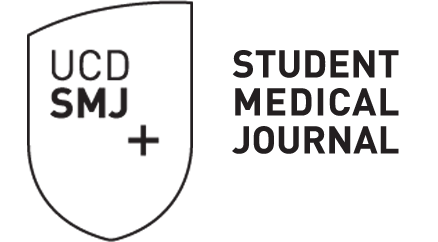france 2018 - medicine, football and joie de vivre
Cormac Everard UCD School of Medicine and Medical Science, University College Dublin, Belfield, Dublin 4, Ireland
Article
Last summer I had the pleasure of spending two months in France, undertaking clinical electives at Centre Hospitalier Universitaire in Nantes and Hôpital Necker in Paris. On top of the invaluable experience in medicine, the summer also brought culture, sights and the FIFA World Cup, where - to my delight - the French team had several excellent matches and a convincing victory in the final.
Although undertaking my electives through French was daunting, I was fortunate to attend a medical French course in Lille and some evening tutorials at St James’s Hospital prior to starting at CHU Nantes. At CHU, I was introduced to the larger hands-on role medical students play in patient care at hospitals in France, something I quickly grew to enjoy.
In Ireland, medical students generally rotate between teams weekly to gain broad exposure to specialities in an observational capacity. In contrast, students in France are attached to teams for much longer periods, and are given defined roles and responsibilities as a team member. For example, it is the student’s responsibility to perform the initial history-taking and examination, to present on rounds, and to write up the notes, which are then reviewed by senior staff. Students also perform ECGs, call up for results or referrals for patients and deliver orders to radiology. Teaching is patient-oriented and specific to the tasks at hand. Student involvement extends as far as helping perform procedures such as ascitic taps, arterial blood gases and lumbar punctures under the team’s supervision. There is also a tradition of baking a cake for the team after a student’s first lumbar puncture, although this may depend on the extent of the consultant’s sweet tooth! While my role was limited initially, I took on more responsibilities as my confidence grew. As the weeks went by, I felt a growing sense of satisfaction from the contribution I was making to our patients’ care.
The electives also offered a broader insight into French medical education, which is divided in three cycles. In the first cycle, students spend three years learning medical sciences and clinical skills, with mandatory nursing placements and some clinical attachments. In the second cycle, students undertake three years of hands on clinical work combined with formal teaching. In some centres, such as Hôpital Necker, a student’s clinical commitment involves working half days with the same team for three months, with formal teaching in the afternoons and evenings. In other centres, such as CHU Nantes, students alternate between full time placement and lectures every month. At the end of this cycle, students write the ECN, the standardised national ranking exam. The ranking each student achieves is currently the only factor in determining choice of specialty and training site for the third cycle. This contrasts with the Irish system, which favours University results over a national exam, and where additional factors such as research, interest and interview performance are taken into account when selecting trainees. Although many countries have a similar ranking exam to France, the French intend to change their selection process soon1, with more recognition being given to students’ interest and research in the specialty.
Overall, the summer provided a myriad of experiences and insights for which I am extremely grateful. The sense of purpose and satisfaction I gained from contributing to patient care has provided me with an enduring source of motivation, and I now feel happier and more comfortable with clinical medicine. I’d highly recommend electives in France to anyone interested in working in the Francophonie or in international health, not only for the great clinical learning but also for the sights, delights and joie de vivre that comes with it!
ACKNOWLEDGEMENTS
The family of Dr Nicholas and Mrs Maura Martin – for their financial generosity which made the electives possible. Dr. Ralph Hurley O’Dwyer – for his exceptionally generous help with medical French (teaching us on Thursday evenings after a long day at work!) and organising the elective in Nantes. Nadia Dalton and the UCD International Office – for their help in organising the Paris Elective. The Infectious Diseases and Tropical Medicine team at CHU Nantes.The Infectious Disease team at the Centre d’infectiologie Pasteur-Necker in Paris. The Anglo-French Medical Society – for providing a fantastic intensive course in medical French in Lille and for subsidizing students to attend.
References
01. Stromboni, C. (2018). Etudes de santé : fin des épreuves classantes nationales pour les futurs médecins. Le Monde.fr. Available at: https://www.lemonde. fr/campus/article/2018/07/05/ etudes-de-sante-fin-des-epreuvesclassantes-nationales-pour-les-futursmedecins_5326636_4401467.html.

